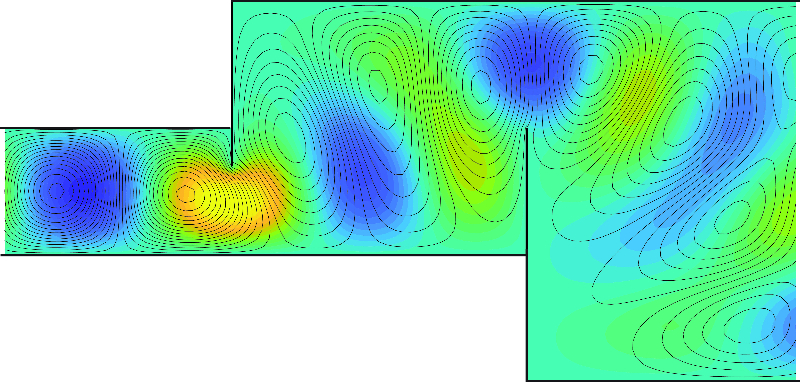- decomposition of the fields and Maxwell's equations in isotropic media
- analysis of propagating and evanescent TM-, TE- & TEM-modes in metallic hollow waveguides
- hollow waveguides with rectangular and circular cross-sections
- application of mode orthogonality at excitation from sources and at energy transport
- the mode matching method to analyse scattering at discontinuities
- analysis of attenuation of and coupling between waveguide modes
- analysis of resonance cavities, orthogonality relations, losses and bandwidth
- planar dielectric waveguides and optical fibres
- analysis of the quasi-TEM modes in multiconductor systems
EI2410 Field Theory for Guided Waves 7.5 credits

Information per course offering
Choose semester and course offering to see current information and more about the course, such as course syllabus, study period, and application information.
Information for Spring 2026 TEFRM programme students
- Course location
KTH Campus
- Duration
- 13 Jan 2026 - 13 Mar 2026
- Periods
Spring 2026: P3 (7.5 hp)
- Pace of study
50%
- Application code
61095
- Form of study
Normal Daytime
- Language of instruction
English
- Course memo
- Course memo is not published
- Number of places
Min: 10
- Target group
- Open to all programmes as long as it can be included in your programme.
- Planned modular schedule
- [object Object]
- Schedule
Contact
Course syllabus as PDF
Please note: all information from the Course syllabus is available on this page in an accessible format.
Course syllabus EI2410 (Spring 2026–)Content and learning outcomes
Course contents
Intended learning outcomes
After passing the course, the student shall be able to
- use the electromagnetic laws combined with mathematical methods to solve electromagnetic field problems.
To obtain higher grades, the student shall be able to
- demonstrate in-depth conceptual understanding and outline general principles of guided electromagnetic waves.
Literature and preparations
Specific prerequisites
- Knowledge in electromagnetic field theory, 9 credits, equivalent to completed course EI1320 or both courses EI1220 and EI1222.
- Knowledge in mathematical methods in physics (in particular partial differential equations), 4 credits, equivalent to completed course SI1200 or SF1693 or EI2405.
Active participation in EI2405 whose final examination has not yet been reported to Ladok is equated with course completion.
Being registered for a course counts as active participation.
Recommended prerequisites
Basic courses in electromagnetic theory. Course in mathematical methods in physics and complex analysis are recommended.
Literature
Examination and completion
Grading scale
Examination
- PROB - Project work, 2.5 credits, grading scale: A, B, C, D, E, FX, F
- TENC - Written Exam, 5.0 credits, grading scale: A, B, C, D, E, FX, F
Based on recommendation from KTH’s coordinator for disabilities, the examiner will decide how to adapt an examination for students with documented disability.
The examiner may apply another examination format when re-examining individual students.
If the course is discontinued, students may request to be examined during the following two academic years.
Examiner
Ethical approach
- All members of a group are responsible for the group's work.
- In any assessment, every student shall honestly disclose any help received and sources used.
- In an oral assessment, every student shall be able to present and answer questions about the entire assignment and solution.
Further information
Course room in Canvas
Offered by
Main field of study
Education cycle
Supplementary information
In this course, the EECS code of honor applies, see: http://www.kth.se/en/eecs/utbildning/hederskodex.